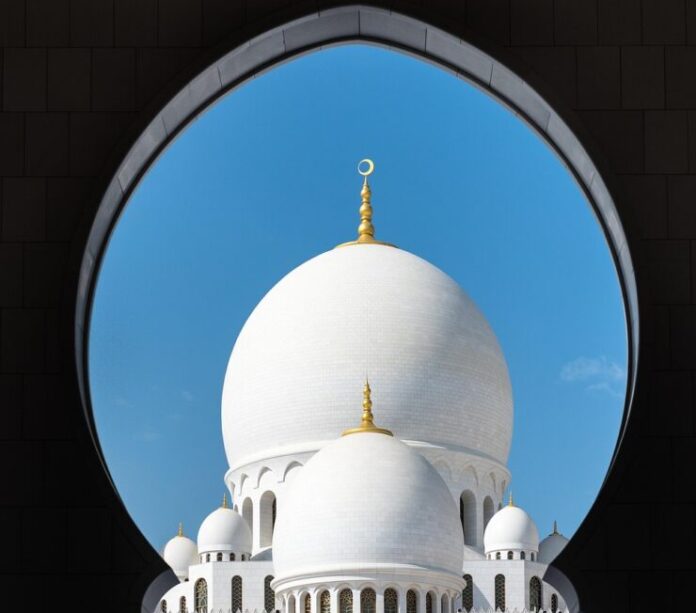My first experience in the UAE remains fresh in my memory. The grand mosques together with the call to prayer and welcoming hospitality left me completely astonished. Tourism revealed to me that learning about Islamic culture becomes vital for anyone visiting UAE. The daily activities in UAE are strongly influenced by Muslim customs which determine both greetings and clothing practices.
Your knowledge of UAE cultural etiquette will prevent misunderstandings when you travel to the country. You find yourself in a café during Ramadan enjoying your drink until you discover that fasting rules prohibit public eating during the fasting period. Little gestures will significantly impact how UAE residents view you. The practice of respect simultaneously enhances your journey while enabling better relationships with people.
This guide provides essential information about Islamic traditions in the UAE that all tourists should understand. It will also provide comprehensive information about the UAE dress code and dining customs. By the end of this guide, your knowledge and comfort level will increase enough to appreciate the UAE cultural heritage with respect. Let’s dive in!
The Influence of Islam on UAE Culture

The daily calls to prayer can be heard throughout Dubai’s streets five times during each day. The mosques broadcast this prayer which serves as a reminder of faith to all people in the area. Islamic culture in UAE establishes a deep influence on the everyday activities of residents. From laws to social customs, Muslim traditions in UAE influence everything. People in UAE greet each other with As-salamu alaykum which embodies Islamic values focused on peace and kindness.
Islamic traditions in the UAE base their customs on respect and hospitality. UAE residents receive friendly hospitality through traditional Arabic coffee and dates when they welcome guests. Family ties are significant in this culture since you will observe strong relationships between relatives. UAE society places strong importance on the Islamic calendar because it unites communities through significant festivals such as Eid al-Fitr and Eid al-Adha. Tourists can discover the UAE’s rich cultural heritage through its customs, which help them forge authentic connections with locals.
UAE Dress Code: What Tourists Should Wear

My uncertainty regarding suitable travel items began before my first trip to UAE. My understanding of UAE Islamic culture showed its emphasis on modesty but I still needed clarity about visitor dress standards. Local residents had to follow traditional dress rules yet visitors maintained freedom to select their own clothing choices. Visitors should wear modest clothing when visiting malls markets and mosques in public areas. Women need to dress with clothing that extends past their knees and shoulders and men should choose shirts with sleeves and avoid wearing shorts that are too short.
Visitors to beach resorts and private hotels can follow relaxed dress codes yet all visitors must adhere to covering up when visiting mosques and religious sites. Women visiting mosques need to wear an abaya (long robe) and a headscarf which mosque entrances usually provide. Following UAE cultural dressing protocols enables visitors to become part of the local environment and stay away from unwanted attention. The desert heat becomes more manageable when you choose fabrics that breathe easily. A simple act of appropriate dressing demonstrates your respect for Muslim traditions in UAE while allowing you to explore the country without concerns.
Greetings and Social Etiquette in the UAE

My first greeting to a local person in the UAE involved using “hello” but I learned “As-salamu alaykum” was the proper salutation. The proper greeting turned out to be “As-salamu alaykum” upon my first day in the UAE. The greeting As-salamu alaykum carries the meaning “peace be upon you” and the proper reply is Wa alaykum as-salam. A simple greeting created positive reactions from the local community which brought about immediate friendly feelings. Handshakes are typical between UAE residents but they only occur between members of the same gender. The appropriate greeting with someone of different gender requires you to observe their initial handshake behavior before proceeding.
The UAE cultural etiquette places respect at its core. Elderly people receive great respect in the UAE so people typically stand when meeting them. When meeting people in the UAE it is proper to shake hands and exchange items using your right hand. Using a calm and polite voice tone with gentle gestures represents the best approach in UAE cultural interactions. Knowledge about Muslim customs in UAE enables better connections with locals while demonstrating proper respect for their cultural traditions.
Public Behavior: What Tourists Should Know

The public areas throughout the United Arab Emirates maintain a peaceful and respectful atmosphere. The public behavior in the UAE includes quiet arguments and modest clothing along with adherence to local traditions. The act of kissing or hugging in public spaces is uncommon in the UAE and may be interpreted as disrespectful behavior. Married couples can hold hands in public yet any more intimate behavior should be completely avoided. Proper attire remains essential because it is required in all public places including shopping malls and mosques and government buildings.
A successful trip depends on respecting both local laws and customs. The UAE does not accept swearing along with rude gestures and public drunkenness. The UAE allows alcohol consumption in licensed establishments yet public intoxication results in possible fines and legal penalties. Tourists who follow Islamic traditions in UAE will experience a more pleasant and respectful visit.
Before photographing local people, you should always request permission because privacy is very important to them, especially when photographing women.
Food and Dining Etiquette in the UAE

The dining experience in the UAE stands apart from other countries. The standard dietary practice in the UAE follows Halal principles, which prohibit pork and alcohol from traditional food consumption. Local hospitality includes serving Arabic coffee and dates to guests who eat with them. You should use your right hand to accept food because locals view the left hand as improper for eating. Traditional UAE food involves sharing communal dishes while both hands must remain right-handed.
People need to follow specific dining rules during the month of Ramadan. Public consumption of food and drinks and smoking should be avoided during fasting hours. The daytime fasting period ends at sunset, when restaurants open to serve Iftar meals to their customers. Tourists can eat in designated areas during Ramadan, yet they should be mindful of fasting Muslims to show respect for Islamic traditions in the UAE.
Visiting Mosques and Religious Sites in the UAE

The mosques across the UAE maintain a beautiful, peaceful atmosphere. Non-Muslim tourists can visit both the Sheikh Zayed Grand Mosque and other religious sites throughout the United Arab Emirates. Visitors need to follow specific guidelines when they visit UAE mosques and religious sites. The dress code requires women to wear head coverings while both genders must put on long loose-fitting clothing. All visitors need to take off their shoes when entering the premises. The act of speaking quietly, along with maintaining peaceful conduct, demonstrates respect towards others. Most areas allow photography yet visitors need to verify specific rules before taking photos.
Women Travelers: Safety and Cultural Considerations
Women who travel to the UAE will find it to be one of the most secure travel destinations available. Islamic culture in UAE values women through respect as a fundamental aspect. Wearing modest clothing protects travelers from receiving unnecessary public attention. Public transport systems and specific areas within the country provide separate sections for women to enhance their comfort. Female travelers who travel solo will experience safety in the UAE yet they must follow cultural rules which include avoiding physical contact with men during greetings. Travel becomes easier and more satisfying when people observe these basic customs.
Common Myths About Islamic Culture in the Region

Many Tourists hold the misconception that the UAE maintains strict rules which make it uninviting to foreign visitors. This is far from the truth. The nation successfully unites contemporary development with traditional values to establish an inclusive environment for different cultures. The UAE adopts Islamic values as its foundation but welcomes residents from all nations. Travelers can fully experience beaches and shopping malls and entertainment venues in the UAE while following the local customs.
Many people believe women in society have restricted freedom. Women in the United Arab Emirates receive high respect from their society while actively participating in various important roles. Women in the UAE participate in business and government roles and educational institutions while retaining their freedom to travel by car and make independent choices. The UAE provides protection and rights to all individuals which makes it an ideal destination for everyone. Knowledge about Islamic traditions in UAE enables visitors to see past stereotypes while they discover the authentic cultural heritage of the country.
Read This: Explore the Top 10 Famous UAE Historical Sites
FAQs
Which faith stands as the national religion for the United Arab Emirates?
The UAE officially recognizes Islam as its state religion which shapes both social customs and everyday activities throughout the country.
What type of dress code required to visit Public Areas in UAE?
The public areas of the UAE require visitors to dress modestly since it shows respect for local customs by avoiding tight or revealing clothing.
The UAE allowed the non-muslims to visit mosques.
The Sheikh Zayed Grand Mosque and other selected mosques allow non-Muslim visitors through strict dress code requirements and appropriate behavior standards.
The UAE allows its residents to drink alcohol.
The UAE has licensed venues for alcohol sales yet public intoxication remains illegal and leads to legal consequences.
Can we as tourists take pictures in public places in the UAE?
Photography is typically permitted in the UAE yet tourists should obtain consent before photographing local people particularly women because it supports privacy standards.
Final Thoughts on Understanding Islamic Culture in the UAE
Your travel experience in UAE becomes more historical when you respect its Islamic cultural traditions. The UAE people value respectful gestures in everyday interactions including greetings and dining customs. Your connection with UAE people will improve when you learn about their local traditions because the country warmly welcomes visitors. Your travel experience will enhance when you practice these traditional customs while exploring grand mosques and local cuisine and participating in Ramadan celebrations.
The UAE welcomes visitors by blending modern urban development with its authentic cultural traditions. Tourists who follow Islamic culture in UAE will experience a respectful and smooth visit to the country. A positive experience in UAE develops through basic practices of modest clothing combined with polite communication and respectful public conduct. Travel extends beyond sightseeing because it allows people to learn and value alternative life approaches.



